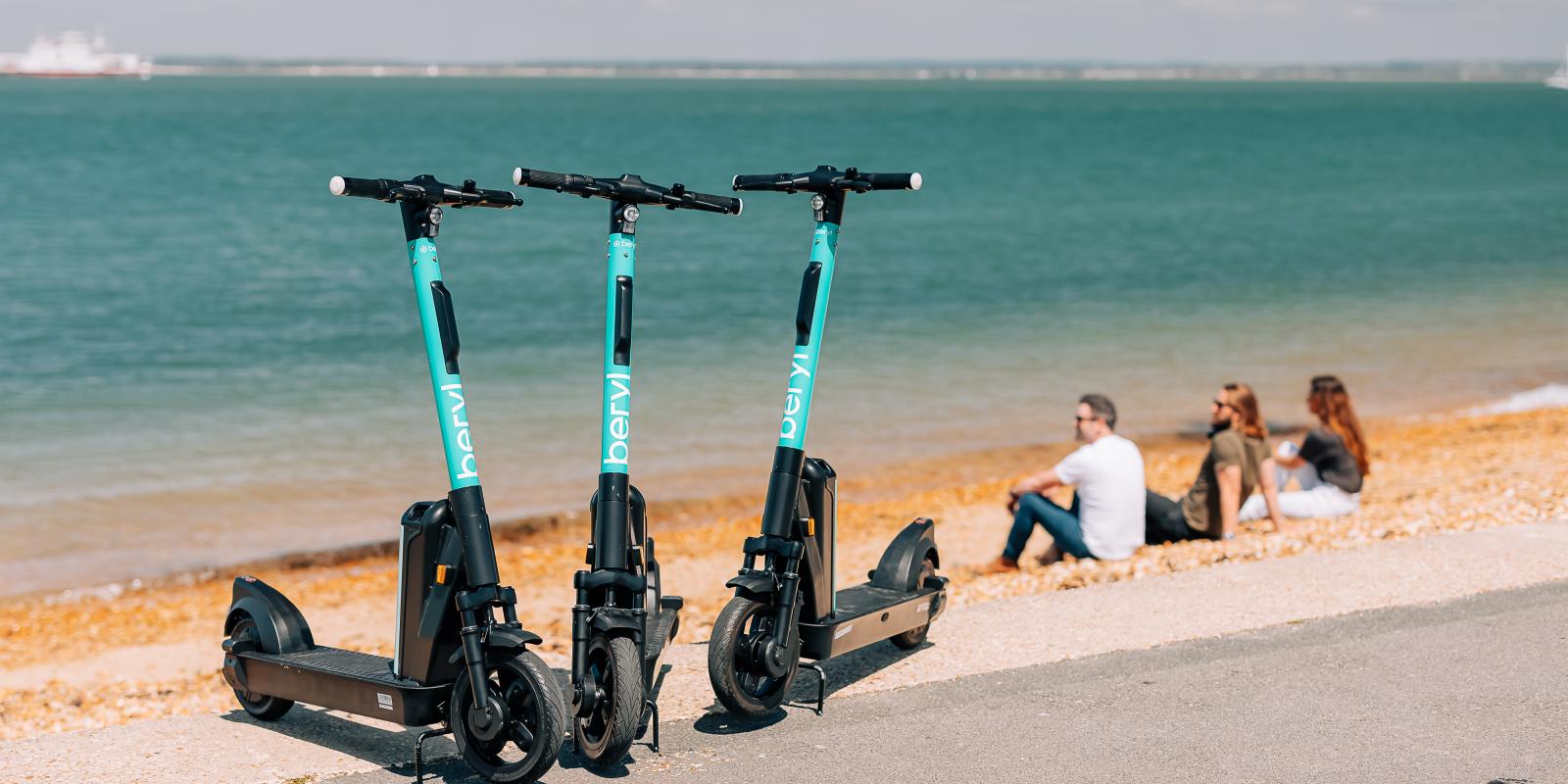The Department for Transport’s National Evaluation of e-scooter trials findings report shows Bournemouth to be the second and Norwich to be the fifth most utilised trials in the 32 across the country.
Released this week, figures show that the Bournemouth and Poole scheme generates four trips per e-scooter per day, while the Norwich scheme generates 3.4 trips per e-scooter per day. The figures are an average based on the lifetime of each trial.
Since Beryl introduced the first of its three trial schemes (Bournemouth and Poole, Norwich and Isle of Wight) in September 2020, it has generated more than 1,115,000 journeys across 3,711,749 km. Feedback from users indicates that over 31% of these journeys have replaced road transport journeys which, based on industry calculations, has led to a saving of nearly 50 tonnes of carbon dioxide emissions.
Each Beryl e-scooter is fitted with the company’s own industry-leading e-bike/e-scooter connected technology. This provides each vehicle with a self-contained suite of onboard sensors to alert to the real time status of the rider and the vehicle. The technology is used to help on-street and customer service teams ensure the schemes are as user friendly as possible.
Research from Beryl’s Annual Rider Report for 2022 also shows that the presence of e-scooters in multiple mode schemes encourages greater use of sustainable transport. Compared to 2021, riders are much more likely to try multiple modes, with the overall number of people riding bikes, e-bikes and e-scooters more than doubling from 7% to 15%.
Beryl CEO and co-founder, Phil Ellis, said: “What these trials have shown us is that the demand for shared e-scooter schemes is there, and that such schemes can continue to flourish alongside private ownership.
“By legalising their use, the government would break down further barriers to sustainable transport, making e-scooters more accessible, boost their popularity and normalise their presence on our roads.
“This would amplify calls for better infrastructure, which would not only improve safety, but also the perception of safety, and encourage even more people to leave their car keys at home.”
Councillor Mike Greene, BCP Council’s Portfolio Holder for Sustainability and Transport said: “We’re pleased to be participating in the Department for Transport’s trial of rental e-scooters; usage has far exceeded our expectations. Research also highlights how e-scooter journeys can help cut both carbon emissions and traffic congestion.
“The notable success and popularity of the trial in the BCP region reflects our on-going commitment to sustainable travel and our existing Bike Share scheme, giving people convenient and attractive travel choices. We look forward to developing the scheme in the future, with further investment in e-bikes planned for spring 2023.”
Councillor Lana Hempsall, Sustainable Transport Champion for Norfolk County Council said: “We’re thrilled that the scheme in Norwich has been such a success and continues to grow with more bays being launched each month.
“More than one million km have been travelled on the green e-scooters which are now well known across Norwich. Many of our locals and visitors have become ‘Beryl converts’ using them to make those shorter journeys to work, education and leisure, rather than taking their car.
“The scheme is proving to be a highly valuable tool in getting more cars off the road and helping us to achieve our targets around Net Zero.”
Beryl’s e-scooter schemes are designed to provide the best possible service for users by being delivered both in partnership with local authorities - BCP Council, Norfolk County Council, Isle of Wight Council and Solent Transport - and in consultation with communities and key stakeholders.
The Department for Transport (DfT) is coordinating regulated trials that allow people in certain areas of England to rent an e-scooter. The first trial started in July 2020 and a total of 32 trials across 55 areas have been implemented. By the end of December 2021, 31 trials remained in operation across 50 areas, delivered by a total of 12 e-scooter operators
The trials have the objectives of informing future policy (including legislation), helping gather evidence on their impacts, contributing to the understanding of the effectiveness of COVID-19 policy responses, and learning implementation lessons. Most trials have been extended to the end of November 2024 to allow DfT to continue to gather data beyond the timescales of this evaluation.
This is the findings report of the evaluation of e-scooter rental trials in England. It has been commissioned by the Department for Transport (DfT) and undertaken by Arup and NatCen Social Research. It includes data collected between July 2020 and the end of December 2021. The report does not cover private e-scooter use; however, it is recognised that private use is widespread and that this may affect the perceptions of the trials on behalf of non-users and the recording of safety data. This has been highlighted where relevant.
For more information, visit beryl.cc
“What these trials have shown us is that the demand for shared e-scooter schemes is there, and that such schemes can continue to flourish alongside private ownership."
